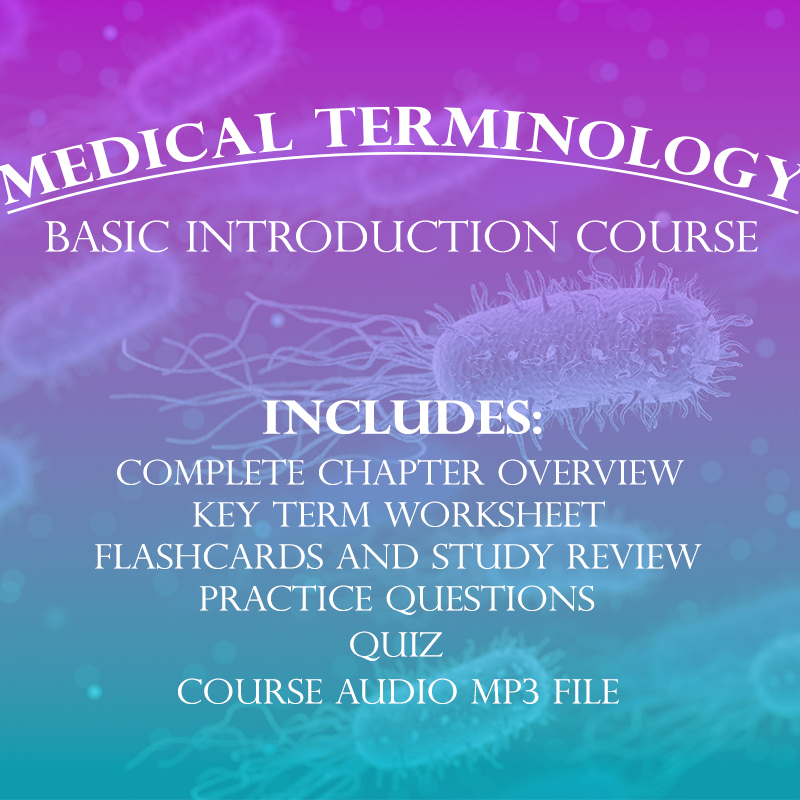Description
oday, we shall delve into the fascinating realm of medical terminology—a lexicon that serves as the foundation of effective communication within the medical community. With precision and consistency, medical terminology enables healthcare professionals to articulate complex concepts, diagnoses, treatments, and anatomical structures with utmost clarity.
Medical terminology predominantly draws from Latin and Greek roots, providing a universal language that transcends geographical and linguistic barriers. Understanding the composition of medical terms is key to unraveling their meanings. Each term typically consists of a root word, which conveys the essential concept, and may be combined with prefixes and suffixes to modify or specify the term’s significance.
The use of prefixes, positioned before the root word, allows for further elaboration. For instance, the prefix “hyper-” denotes an excess or an increase, while “hypo-” indicates a deficiency or decrease. Similarly, suffixes appear at the end of the root word and can modify the term’s meaning, often reflecting the condition or procedure being discussed. For instance, “itis” signifies inflammation, “ectomy” refers to the surgical removal of a specified organ or tissue, and “osis” denotes a non-inflammatory disorder or abnormal condition.
Furthermore, anatomical terminology plays a vital role in accurately describing the structures and locations within the human body. The human body is divided into various systems, such as the cardiovascular, respiratory, digestive, and nervous systems. Each system comprises distinct organs and tissues, and precise terminology ensures clear communication about their functions and relationships.
Medical terminology’s standardized nature facilitates efficient communication among healthcare professionals, thereby enhancing patient care. It also aids in interpreting medical records, understanding scientific literature, and conducting research. Additionally, medical terminology offers a sense of uniformity and consistency in the global medical community, allowing medical practitioners from diverse backgrounds to collaborate effectively.
It is crucial to note that mastering medical terminology requires dedication and practice. Aspiring healthcare professionals and medical students are encouraged to familiarize themselves with commonly used terms, study their etymology, and grasp their practical applications. Such proficiency will undoubtedly elevate their ability to comprehend, convey, and participate in the ever-evolving landscape of medicine.
In conclusion, medical terminology stands as an indispensable cornerstone in the medical world. It empowers professionals to articulate complex medical concepts, fosters efficient communication, and fosters collaboration across borders. Embrace this linguistic arsenal, and you will find yourself better equipped to navigate the vast tapestry of medical knowledge and contribute significantly to the well-being of humanity.
May your pursuit of medical understanding be resolute and rewarding. Keep inquisitive, and let the knowledge you acquire fuel your noble mission to heal and serve.
